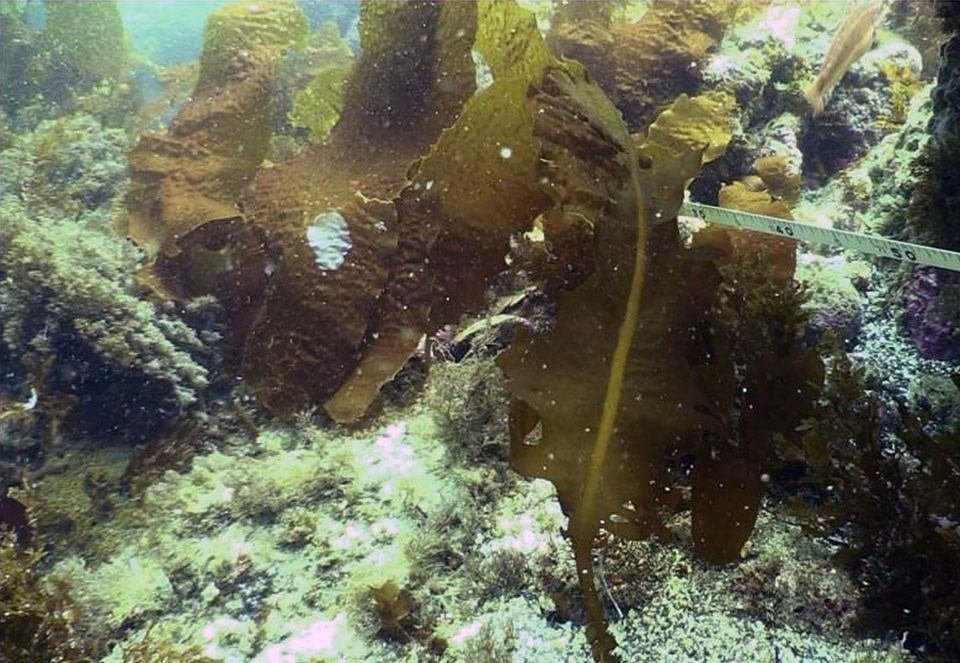In this blog, I want to share a few testimonials related to Fucoidan benefits. Before posting these testimonials, I will go a little deeper first and discuss Fucoidan research, so you can understand how Fucoidan provides its advantage. And then introduce you to testimonials in my blog.
The first research discusses the anti-metastasis of Fucoidan toward metastatic Liver cancer.
Metastasis is one of the significant causes of cancer-related death. It is a complex biological process involving multiple genes, steps, and phases. Unfortunately, there is not a lot of information on Fucoidan’s effect on tumor invasion and metastasis.
We used the mouse hepatocarcinoma Hca-Fcell line, which has high invasive and lymphatic metastasis potential in vitro and in vivo, to examine Fucoidan’s effect on cancer cell invasion metastasis. Hepatocellular Adenoma Subtypes. Three main subgroups are currently distinguished among hepatocellular adenomas (HCA). The inflammatory group (IHCA) accounts for 45% of HCA. It is characterized by an activation of the JAK/STAT pathway, resulting in an inflammatory phenotype with sinusoidal dilation and inflammatory infiltrates. Diagnosis is based on immunohistochemical CRP expression. The subgroup of β-catenin activated HCA is split into two: solely β-catenin activated HCA (bHCA) and tumors. In addition to β-catenin activation display inflammatory phenotypes (bIHCA). Together, they account for 10% of HCA.

In most cases, diagnosis is rested on diffuse immunohistochemical GS expression. The second most frequent subgroup is characterized by a loss of HNF1α and comprises 35% of HCA (H-HCA). Phenotypically, these tumors display steatosis and are found to show negative FABP immunohistochemical staining. The fourth subtype to be depicted is the yet unclassified group of HCA (UHCA). CRP: C-reactive protein; GS: glutamine synthetase; FABP: fatty acid-binding protein 1.
http://www.mdpi.com/1422-0067/16/9/20994/htm
There has been extensive study and evaluation of the effects of Undaria pinnatigida (Ups-fucoidan) on tumor metastasis of Hca-F cells by MTT assay. Hca-F cell growth will decrease depending on the higher addition concentration of Ups-fucoidan.

They used the adhesion assay to measure the binding of Hca-F cells to peripheral lymphatic endothelium. The adhesion capability to Hca-F cells treated with 500 μg/ml and 1000 μg/ml Ups-fucoidan was significantly lower than that of the control. L-Selectin, as an adhesion molecule, plays an important in tumor adhesion to lymph nodes. L-Selectin is predominantly expressed in leukocytes and in tumor cells, which has a high potential of lymphatic metastasis. The finding indicated that Ups-fucoidan down-regulated the expression of L-Selectin, which inhibited the capability of Hca-F cells to adhere to peripheral lymphatic endothelium.
Subsequently, in the invasion assay, the number of Ups-fucoidan-treated cells invaded through the Matrigel-coated filter was significantly lower than that of the control. It also evaluated the relative expression quantity of TIMP-1 and TIMP-3, which suppress the activity of proteins involved in metastasis. The expression of TIMP-1 and TIMP-3 expression was higher compared to the control.
Since expression of cell proliferation, L-Selectin and TIMP were controlled by going through the pathway that is related to transcription factor of NF-kB, we investigated the activity and protein expression of the NF-kB that is related critical elements of the path, PI3K/Akt pathway or ERK signaling pathways which are involved with adhesion, invasion, and metastasis were inactivated. And the number of protein in NF-kB were decreased by Ups-fucoidan. Furthermore, the cell growth factor HGF secretion by Hca-F cells was reduced by fucoidan additive, which is related to the inactivation of the PI13K/Akt pathway and the ERK pathway.
According to the report, the pathway of HGF and its receptor MET path induces lymph-angiogenesis to associate with the vascular endothelial growth factor (VEGF/VGEF-R) pathway. We investigated Ups-fucoidan inhibits lymph node metastasis of Hca-F cells with mice. We inoculated Hca-F cell on the sole of mouse foot and injected Ups fucoidan or control at the same place every day for four weeks. The result is that Ups-fucoidan injected mouse’s weight of the axillary lymph node decreased compared with the control group, of which we found that Ups-fucoidan prevented the invasion of Hca-F.

Hence, in conclusion, Ups-fucoidan could be beneficial to suppress metastasis of cancer.
